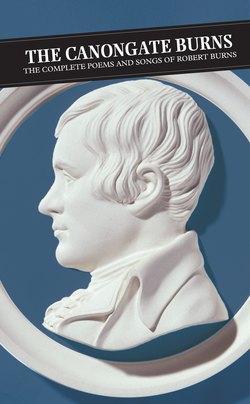Читать книгу The Canongate Burns - Robert Burns - Страница 34
На сайте Литреса книга снята с продажи.
To Ruin
ОглавлениеFirst printed in the Kilmarnock edition, 1786.
All hail! inexorable lord!
At whose destruction-breathing word,
The mightiest empires fall!
Thy cruel, woe-delighted train,
5 The ministers of Grief and Pain,
A sullen welcome, all!
With stern-resolv’d despairing eye,
I see each aimed dart;
For one has cut my dearest tye,
10 And quivers in my heart.
Then low’ring and pouring,
The Storm no more I dread;
Tho’ thick’ning and black’ning
Round my devoted head.
15 And thou grim Pow’r, by Life abhorr’d,
While Life a pleasure can afford,
Oh! hear a wretch’s pray’r!
No more I shrink appall’d, afraid;
I court, I beg thy friendly aid,
20 To close this scene of care!
When shall my soul, in silent peace,
Resign Life’s joyless day?
My weary heart its throbbings cease,
Cold-mould’ring in the clay?
25 No fear more, no tear more
To stain my lifeless face,
Enclasped and grasped
Within thy cold embrace!
This was probably written in the winter of 1781–2. This melancholic work in the bob-wheel stanza of the old Scots poem The Cherry and the Slae, reveals the poet’s holistic view that a God of Nature influences both the pleasure and the woes of life from the fall of historic Empires to individual experience. It is a distinctive brush-stroke of Burns to move from universal comment to a specific incident. The hardship of eighteenth-century rural existence on a leased farm, particularly during winter periods, energises the poem. The subtext is the poet’s rejection by a lover who is believed to be Alison Begbie.
